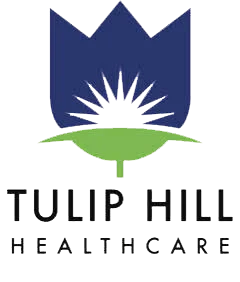Table of contents
Individual Therapy For Addiction

| Medically Reviewed By: Board-Certified Psychiatrist and Addictionologist |

| Clinically Reviewed By: Board Certified Clinical Social Worker |
Did you know that your insurance plan may cover medical detox?
Complete a free, confidential Verification of Benefits to learn more about what resources may be available to you.
Supporting Families Through Recovery
Get Family Support Now
We understand addiction affects the whole family. Our comprehensive family program helps rebuild trust and restore relationships.
Weekly Family Therapy Sessions
Educational Workshops
Support Groups
Communication Skills Training
Many addiction treatment programs often focus on group settings, leaving little room for individualized attention. For some, this approach isn’t enough to address deeply rooted emotional pain or underlying mental health issues. Without the right support, unresolved trauma, anxiety or depression can quietly undermine recovery efforts leading to relapse or burnout.
Individual therapy for addiction treatment at Tulip Hill Healthcare offers a one-on-one, tailored approach to recovery. Our experienced therapists create a confidential, supportive space where your mental, emotional, and behavioral health are addressed holistically, giving you the focused care you deserve.

What Is Individual Therapy for Addiction?
Individual therapy for addiction is a personalized form of addiction therapy where a licensed therapist works one-on-one with a client to address substance use disorders and underlying mental health concerns. Unlike group therapy settings, individual therapy sessions provide a private space for you to work through deeply personal issues such as trauma, anxiety, depression, or family dynamics.
This therapeutic approach focuses on identifying triggers, developing coping mechanisms, and creating sustainable recovery strategies tailored to each person’s specific needs. Individual addiction therapy is particularly effective in a comprehensive addiction treatment plan, where it’s combined with other modalities to support every aspect of a person’s recovery journey.
Benefits of Individual Therapy for Addiction
The benefits of individual therapy for addiction are numerous and often serve as the foundation for successful long-term recovery. Here’s how one-on-one addiction therapy can transform your healing journey:
-
Personalized Treatment Plans:Individual therapy sessions allow therapists to create customized treatment strategies that address your specific addiction patterns, triggers, and recovery goals. This personalized approach increases the likelihood of successful outcomes compared to one-size-fits-all programs.
-
Safe, Confidential Environment:The confidential nature of individual therapy creates a judgment-free environment where you can openly discuss sensitive topics, including trauma, shame, and personal struggles that may contribute to addictive behaviors.
-
Focused Attention:Unlike group settings, individual therapy ensures you receive the therapist’s complete attention throughout each session. This focused approach allows for deeper exploration of complex issues and more immediate feedback on your progress.
-
Flexible Pacing:Individual addiction therapy allows you to work through recovery at your own pace. Some topics may require more time to process, while others might be addressed more quickly, depending on your comfort level and readiness.
-
Co-occurring Disorder Treatment:Many individuals struggling with addiction also face mental health conditions such as anxiety, depression, or PTSD. Individual therapy provides the opportunity to address these dual diagnoses simultaneously, improving overall treatment outcomes.
-
Skill Development:Through individual therapy sessions, you’ll learn practical coping strategies, stress management techniques, and relapse prevention skills that are specifically tailored to your lifestyle and challenges.
Types of Individual Therapy Used in Addiction Treatment
Several evidence-based therapeutic approaches are commonly used in individual therapy for addiction treatment. Each method offers unique benefits and can be tailored to meet specific recovery needs:

Behavioral Therapy for Addiction
Behavioral therapy is one of the most common forms of addiction treatment. It focuses on identifying negative behaviors linked to substance use and replacing them with healthier habits. This approach helps clients understand how certain actions, environments, or thought patterns lead to drug or alcohol use and how to interrupt that cycle. At Tulip Hill Healthcare, our therapists guide clients in developing skills to manage triggers, avoid high-risk situations, and reinforce positive decision-making. This approach is effective in both early recovery and relapse prevention, offering clear strategies for long-term success.
Cognitive Behavioral Therapy (CBT)
Cognitive behavioral therapy and substance abuse treatment go hand in hand, making CBT one of the most widely used and effective approaches in addiction recovery. Cognitive behavioral therapy for addiction treatment focuses on identifying and changing negative thought patterns that contribute to substance abuse behaviors.
For example, someone might believe they can’t cope with stress without alcohol. CBT challenges that belief and replaces it with practical tools such as relaxation techniques or communication strategies that help the individual stay in control without using. Over time, clients build confidence in their ability to face life’s challenges without turning to substances. CBT is particularly effective in treating co-occurring disorders like anxiety and depression alongside addiction.
Dialectical Behavior Therapy (DBT)
Dialectical Behavior Therapy for addiction is especially helpful for individuals who struggle with emotional regulation and intense interpersonal conflicts. Originally developed to treat borderline personality disorder, DBT has become an effective tool in addiction treatment particularly when trauma or mental health disorders are involved.
DBT focuses on four core modules: mindfulness, distress tolerance, emotion regulation, and interpersonal effectiveness. These skills are particularly valuable for individuals in recovery, as they provide concrete strategies for managing difficult emotions without turning to substances. The mindfulness component helps patients stay present and aware of their thoughts and feelings, while distress tolerance skills provide healthy alternatives to substance use during times of crisis.
The interpersonal effectiveness module of dialectical behavior therapy for addiction helps patients improve their relationships and communication skills, which are often damaged by substance abuse. By learning to navigate relationships more effectively, individuals can build stronger support systems that contribute to long-term recovery success.

Motivational Interviewing (MI)
Motivational Interviewing (MI) is a client-centered technique that focuses on enhancing internal motivation to change. Many people entering treatment are unsure about quitting or feel conflicted. MI helps resolve that ambivalence about recovery. Through open-ended questions and guided conversation, therapists help clients explore their values, goals, and readiness for change. Instead of confronting or lecturing, MI encourages clients to find their own reasons for pursuing sobriety. This self-discovery process often leads to stronger commitment to recovery and better treatment outcomes.

Medication-Assisted Treatment (MAT)
Medically-assisted treatment (MAT) combines behavioral therapy with FDA-approved medications to treat substance abuse disorders. This approach is particularly effective for opioid and alcohol addiction therapy, where medications can help reduce cravings and withdrawal symptoms while patients engage in counseling and behavioral therapies.
MAT is not replacement therapy but rather a comprehensive approach that addresses both the physical and psychological aspects of addiction. When combined with substance abuse counseling techniques, MAT can significantly improve treatment outcomes and reduce the risk of relapse.
Eye Movement Desensitization and Reprocessing (EMDR)
For individuals whose addiction is rooted in trauma, Eye Movement Desensitization and Reprocessing (EMDR) can be a powerful therapeutic tool. EMDR helps process traumatic memories that may contribute to substance abuse, allowing individuals to heal from past experiences that fuel their addiction. This evidence-based approach uses bilateral stimulation, typically through guided eye movements, to help the brain process traumatic memories more effectively. By addressing underlying trauma through EMDR, patients often find that their urges to use substances decrease significantly, as they no longer need substances to cope with unresolved traumatic experiences.

Veteran-Focused Therapy:
Individual therapy for veterans with addiction takes into account military-specific experiences, PTSD, and reintegration struggles that may contribute to substance use.

Who Should Consider Individual Therapy for Addiction?
Individual therapy for addiction can benefit a wide range of people struggling with substance use disorders. However, certain individuals may find this approach particularly valuable for their recovery journey. They include:
- Individuals with co-occurring mental health conditions
- People who feel uncomfortable in group settings
- Those with unique or complex addiction histories. This includes individuals with multiple addictions, long-term substance use, or specific triggers related to their personal experiences.
- Veterans and first responders
- Individuals in early recovery
Individual therapy can also be a vital part of aftercare or relapse prevention, helping clients stay connected and accountable throughout their recovery journey.
What We Treat at Tulip Hill Healthcare
Addiction can stem from a variety of substances, each with its own challenges. At our facilities, we specialize in treating a wide array of addictions. The addictions we treat all come with different challenges, but regardless, we are committed to helping each individual overcome their addiction and achieve lasting recovery. Here are some of the substances that we treat at Tulip Hill Healthcare.
Alcohol
Opioids
Cocaine

Methamphetamine

Prescription medications

Other controlled substances
Why Choose Tulip Hill Healthcare?
With so many alcohol treatment centers Nashville TN and KY offer, choosing the right one can feel overwhelming. Here’s why Tulip Hill Healthcare’s network of rehab centers should be your top choice.

Holistic Care
Tulip Hill Healthcare addresses both the physical and emotional aspects of addiction, ensuring comprehensive recovery. At all of our alcohol rehab centers Nashville TN and KY have, patients receive personalized care plans tailored to their unique needs.

Compassionate Support
Addiction can be a difficult journey for both the individual struggling with it and their loved ones. When it comes to alcohol addiction, we know the road to recovery is rarely a straight line. At each of our rehab centers, we understand the importance of providing compassionate support throughout this journey.

Convenient Locations
Located in Tennessee and Kentucky, Tulip Hill Healthcare enables access to care close to home for individuals in the Southeast region. Whether you’re looking for alcohol treatment Nashville TN offers, alcohol PHP in Louisville, or medical detox in Murfreesboro, there’s a facility near you that can accommodate you and your recovery goals.

Focus on Long-Term Recovery
Through aftercare and relapse prevention programs, our team supports individuals long after completing their primary treatment course. By creating a safe, supportive environment for healing, Tulip Hill Healthcare stands out as a leader in alcohol addiction treatment. You’ll notice walking into our drug and alcohol rehab centers means walking into a world of luxury, serenity, and recovery in TN and KY.
Take The Next Step
Individual therapy for addiction treatment is a vital component of a comprehensive and compassionate recovery plan. Whether you’re dealing with co-occurring mental health issues, trauma, or just need focused support, individual therapy can be the key to lasting sobriety.
At Tulip Hill Healthcare, we are committed to providing holistic, evidence-based care that addresses the whole person, not just the addiction. Our therapists are here to walk with you every step of the way. Contact us today to get started.
Sources →
- National Institute on Drug Abuse. (2020). *Principles of Drug Addiction Treatment: A Research-Based Guide*. NIDA.
- American Psychological Association. (2019). *Clinical Practice Guideline for the Treatment of Substance Use Disorders*.
- Substance Abuse and Mental Health Services Administration. (2021). *Treatment and Recovery for Adults*.
- Journal of Substance Abuse Treatment. (2020). *Effectiveness of Individual vs. Group Therapy in Addiction Treatment*.
- American Journal of Addiction Medicine. (2021). *Evidence-Based Approaches to Individual Addiction Therapy*.
Tulip Hill Healthcare Drug and Aalcohol Rehab Centers
Frequently Asked Questions
Is individual therapy more effective than group therapy for addiction?
Both individual and group therapy are effective, but in different ways. Individual therapy offers privacy and personalized support, while group therapy builds community and shared experience. Many treatment programs combine both for a more holistic approach.
What types of individual therapy are used to treat addiction?
Common types of individual therapy for addiction include CBT, DBT, motivational interviewing, trauma-informed therapy, and therapies tailored for veterans or those with co-occurring disorders.
How long does individual therapy for addiction usually last?
The duration of individual addiction therapy varies depending on factors such as the severity of addiction, presence of co-occurring disorders, and individual Some individuals attend sessions for a few months, while others continue therapy as part of long-term recovery.
Can I receive individual addiction therapy online?
Yes. Many providers, including Tulip Hill Healthcare, offer telehealth sessions. Online therapy is a flexible and accessible option, especially for those with transportation or scheduling challenges. However, some individuals may benefit more from face-to-face interactions, so discuss your preferences with your healthcare provider.
Does insurance cover one-on-one addiction therapy?
Most insurance plans cover individual therapy for addiction treatment, especially if it’s part of a comprehensive rehab program. Tulip Hill Healthcare can help verify your benefits.



